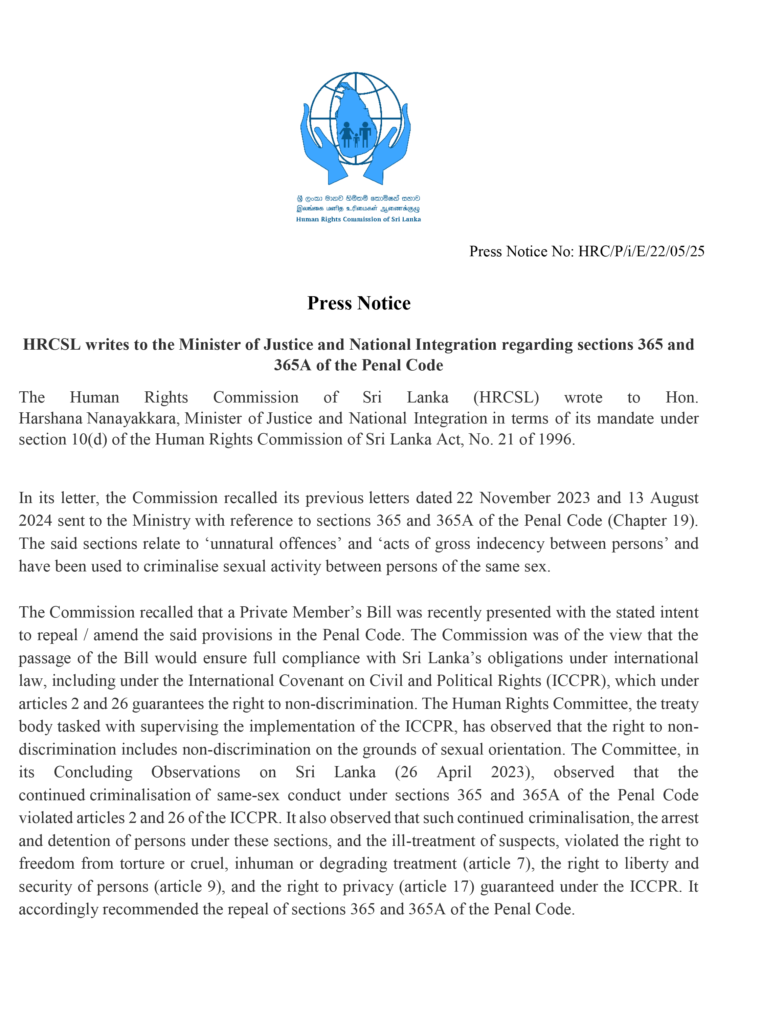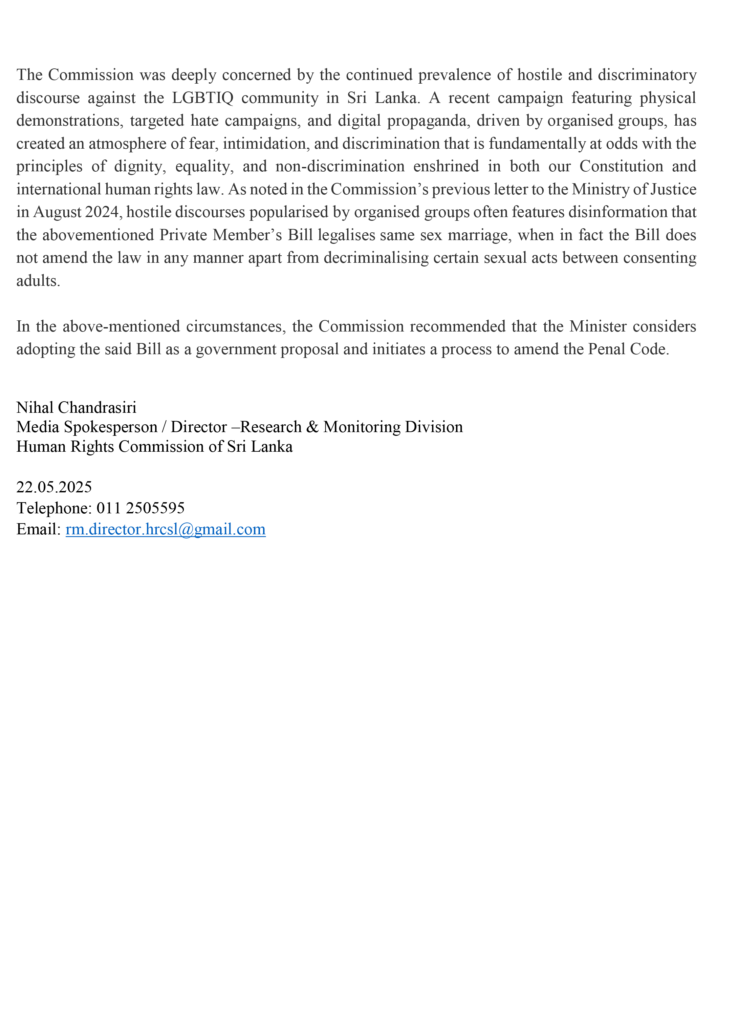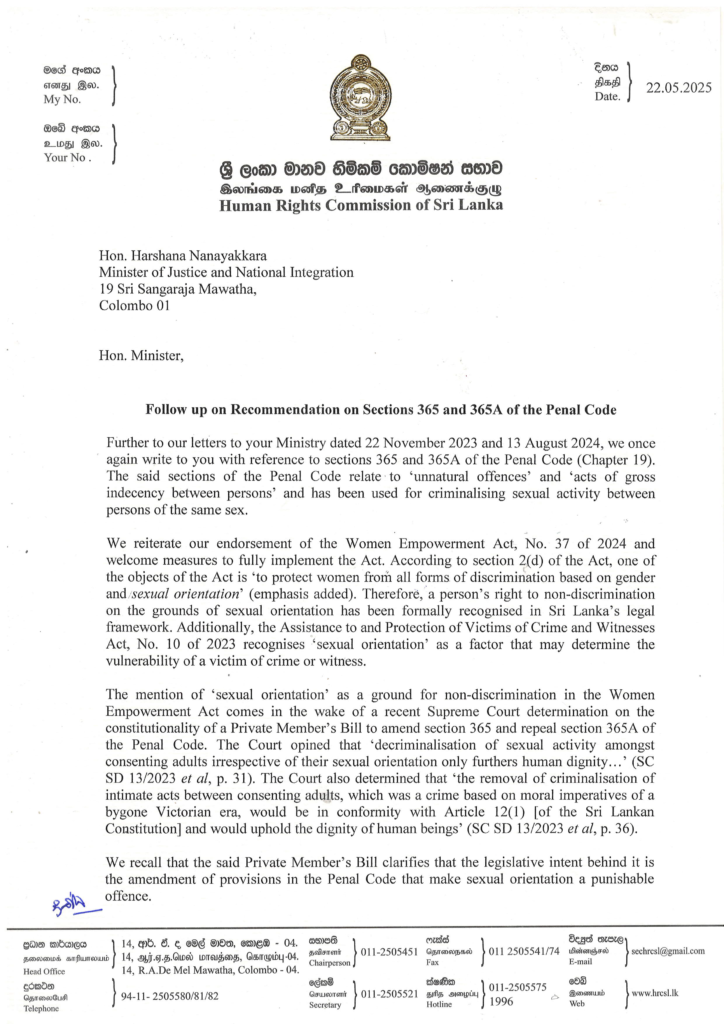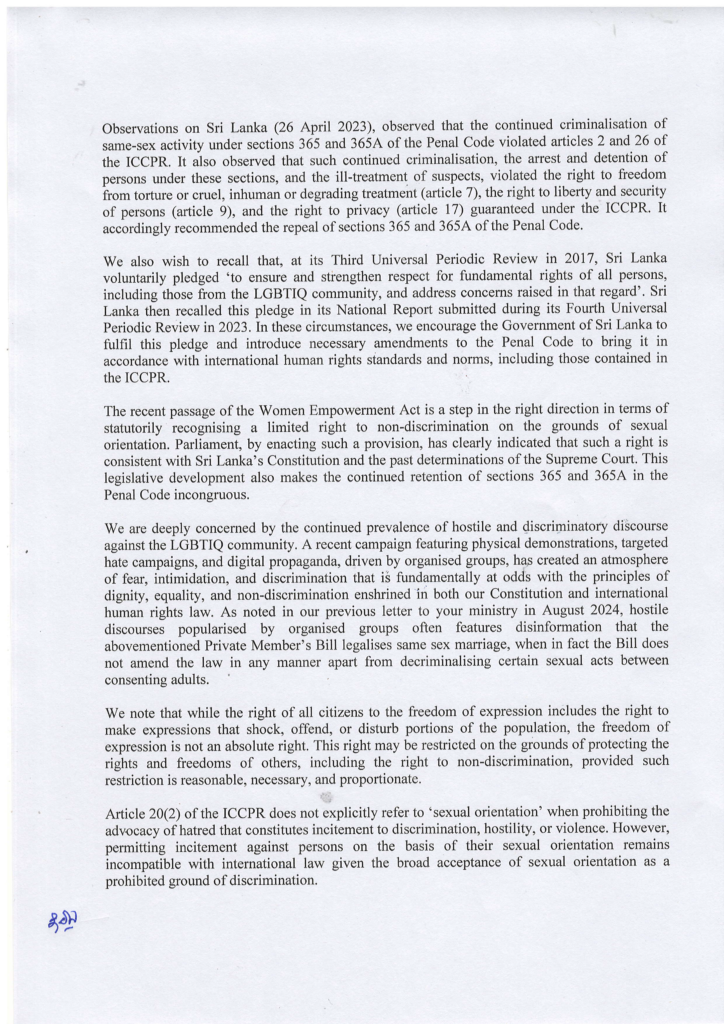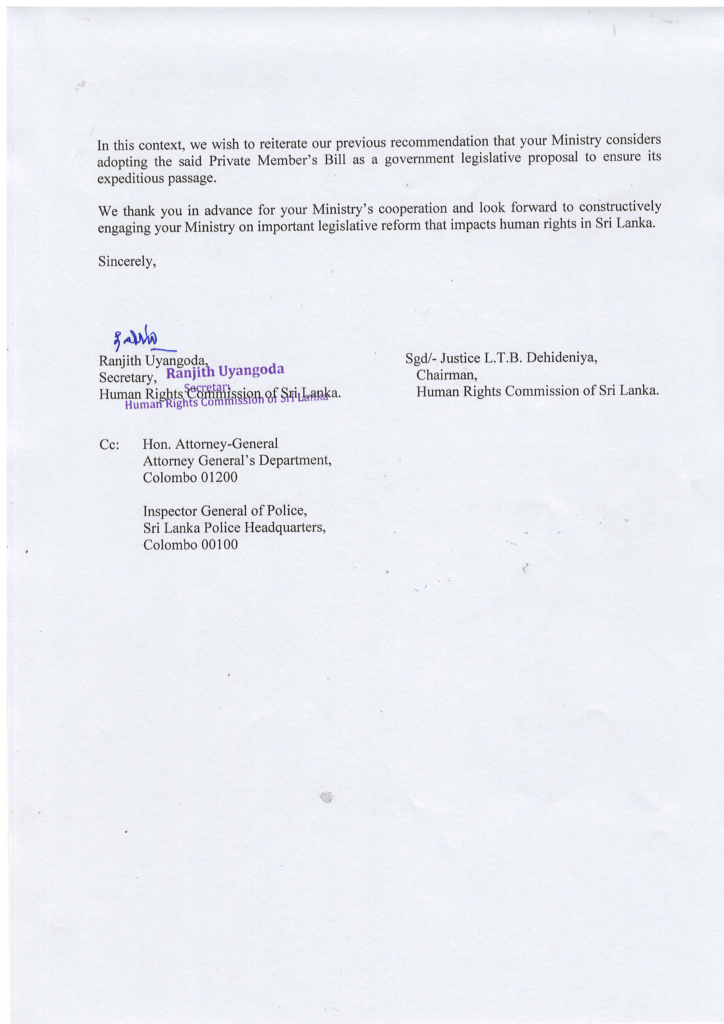By: Isuru Parakrama
May 26, Colombo (LNW): In a significant move for LGBTQIA+ rights in Sri Lanka, the Human Rights Commission of Sri Lanka (HRCSL) has issued a renewed and strongly-worded appeal to the Ministry of Justice, urging the government to finally repeal sections 365 and 365A of the Penal Code—outdated provisions that criminalise consensual same-sex relationships.
In a formal letter dated 22 May 2025, addressed to Justice and Nation Integration Minister Harshana Nanayakkara, the HRCSL reiterated its longstanding recommendation to eliminate these discriminatory legal relics. Sections 365 and 365A, dating back to colonial times, classify same-sex relations as “unnatural offences” and “acts of gross indecency,” forming the legal backbone for the ongoing persecution and marginalisation of the LGBTQIA+ community in Sri Lanka.
The Commission’s letter follows earlier communications in November 2023 and August 2024, as well as a landmark Supreme Court determination in 2023 that affirmed the constitutionality of a Private Member’s Bill aimed at decriminalising consensual same-sex activity. The Court stated unequivocally that the “removal of criminalisation of intimate acts between consenting adults… would uphold the dignity of human beings” and align with Article 12(1) of the Constitution, which guarantees equality before the law.
Moreover, the HRCSL welcomed the enactment of the Women Empowerment Act, No. 37 of 2024, which explicitly recognises non-discrimination on the grounds of sexual orientation—a significant legislative first for Sri Lanka. Similarly, the Assistance to and Protection of Victims of Crime and Witnesses Act, No. 10 of 2023, considers sexual orientation a potential factor of vulnerability, further reinforcing the legitimacy of LGBTQIA+ protection within the country’s legal framework.
Despite these progressive legal strides, the HRCSL expressed grave concern over the increasing hostility targeting the LGBTQIA+ community. According to the Commission, recent campaigns featuring physical demonstrations, hate speech, and digital misinformation—falsely claiming that decriminalisation equates to the legalisation of same-sex marriage—have created a climate of fear and intimidation.
These actions, often driven by coordinated and organised groups, contradict Sri Lanka’s constitutional commitments and its international obligations under the International Covenant on Civil and Political Rights (ICCPR).
The ICCPR’s supervising body has already condemned the criminalisation of same-sex relationships in Sri Lanka as a violation of multiple rights, including protection from torture, the right to privacy, and freedom from discrimination. During Sri Lanka’s Third Universal Periodic Review in 2017 and again in 2023, the government pledged to strengthen protections for LGBTQIA+ individuals—a commitment the HRCSL now insists must be honoured through concrete legal reform.
It urges the Ministry of Justice to adopt the Private Member’s Bill as a government-sponsored legislative initiative, expediting its passage through Parliament. Doing so, the HRCSL argues, would not only fulfil Sri Lanka’s international obligations but also send a powerful message of inclusion and respect for diversity.
In the face of mounting challenges, the HRCSL’s emphasised that equality cannot be conditional, and dignity is not negotiable. Decriminalising consensual same-sex relationships is not about extending special rights—it is about affirming basic human rights for all Sri Lankans.
